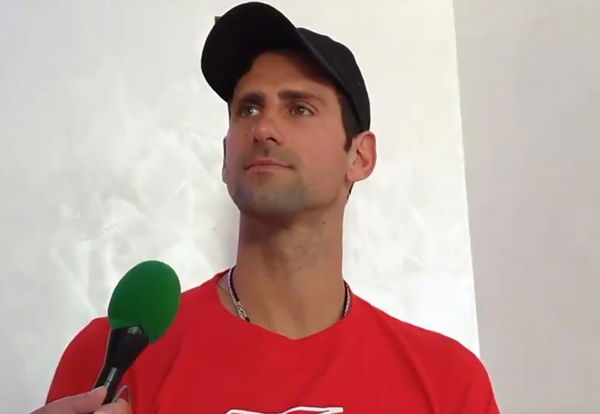

As the quarantine wears on, habitually active tennis performers like Novak Djokovic are finding new ways to engage themselves. While most of us binge-watch movies and TV shows, Novak revealed that he is actually brushing up on his knowledge.
Djokovic has been reading some very interesting work. Not surprisingly, it has a lot to do with the culture of Serbia. Novak has proven in the past that he is deeply emotional about his nation.
ADVERTISEMENT
Article continues below this ad

Novak recently talked about what he’s doing during quarantine. In fact, he has also been reading a lot.
Know More – “Novak Djokovic Beat Me Like A Drum” – Andy Roddick
What did Novak Djokovic say?
Novak said that the quarantine was finally giving him time to connect with his surroundings. In fact, it was giving him time for the finer pleasures of life like reading books.
“It helps me and my surroundings to strive to spend as much time as possible in a positive and cheerful spirit, to try to look as positively as possible.”
“There is a variety of reading, there is a lot of time. I am currently reading Radovan Damjanovic’s Serbo-Serbian Dictionary.”
Radovan Damjanovic is a history professor in Belgrade. However, his area of work and research is something that many won’t know about. Damjanovic is associated with a branch of linguistics called Paleolinguistics.
ADVERTISEMENT
Article continues below this ad
This involves studying ancient linguistic artefacts to reconstruct parts of history. Damjanovic’s works take him to around 5000 BCE. In fact, working on a period that far back in history is one of the toughest jobs in the business.

via Imago
Radovan Damjanovic
Know More – Novak Djokovic And The Andre Agassi Story Behind His Racquet
ADVERTISEMENT
Article continues below this ad
Seeing Novak interested in a book like that is no surprise. In fact, Novak’s logo was deeply inspired by medieval Serbian language and codes. Hence, he has always been interested in the history of language and the semiotics around it.
Maybe, we can all take a cue from the World no 1 and brush up on our latent interests.
ADVERTISEMENT
ADVERTISEMENT
ADVERTISEMENT
ADVERTISEMENT

